Filter by
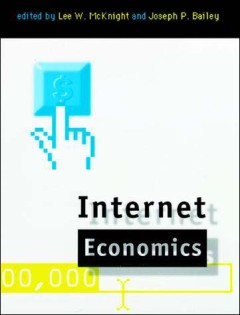
Internet Economics
The Internet has rapidly become an important element of the economic system. The lack of accepted metrics for economic analysis of Internet transactions is therefore increasingly problematic. This book, one of the first to bring together research on Internet engineering and economics, attempts to establish such metrics. The chapters, which developed out of a 1995 workshop held at MIT, include a…
- Edition
- -
- ISBN/ISSN
- 9780262279574
- Collation
- 1 online resource (529 pages)
- Series Title
- -
- Call Number
- 001 INT
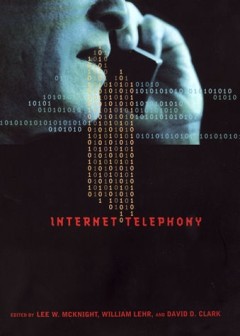
Internet telephony
Internet telephony is the integration and convergence of voice and data networks, services, and applications. The rapidly developing technology can convert analog voice input to digital data, send it over available networked channels, and then convert it back to voice output. Traditional circuit-switching networks such as telephone lines can be used together with packet-switching networks such …
- Edition
- -
- ISBN/ISSN
- 0585386684
- Collation
- 1 online resource (xii, 395 pages) :illustrations
- Series Title
- -
- Call Number
- 001 MCK i

The Internet upheaval : raising questions, seeking answers in communications …
"At the beginning of 2000, the U.S. economy was enjoying the longest period of sustained growth and economic prosperity in its history. According to The Internet Upheaval, part of the explanation for this phenomenon is a consequence of how information technologies, in particular the Internet, are upending fundamental economic and social structures.These research studies explore some of the tele…
- Edition
- -
- ISBN/ISSN
- 0262285606
- Collation
- 1 online resource (xxix, 426 pages) : illustrations
- Series Title
- -
- Call Number
- 001 INT
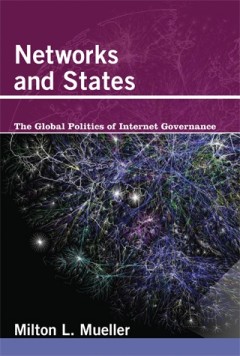
Networks and state : The global politics of Internet governance
"When the prevailing system of governing divides the planet into mutually exclusive territorial monopolies of force, what institutions can govern the Internet, with its transnational scope, boundless scale, and distributed control? Given filtering/censorship by states and concerns over national cybersecurity, it is often assumed that the Internet will inevitably be subordinated to the tradition…
- Edition
- -
- ISBN/ISSN
- 0262289660
- Collation
- 1 online resource (313 pages) :illustrations.
- Series Title
- -
- Call Number
- -
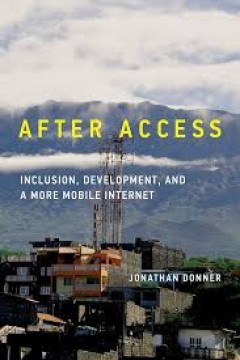
After access : inclusion, development, and a more mobile Internet
"Almost anyone with a $40 mobile phone and a nearby cell tower can get online with an ease unimaginable just twenty years ago. An optimistic narrative has proclaimed the mobile phone as the device that will finally close the digital divide. Yet access and effective use are not the same thing, and the digital world does not run on mobile handsets alone. In After Access, Jonathan Donner examines …
- Edition
- -
- ISBN/ISSN
- 9780262331258
- Collation
- 1 online resource (x, 295 pages) :illustrations.
- Series Title
- -
- Call Number
- -

Subversion, conversion, development : cross-cultural knowledge exchange and t…
This volume explores alternative cultural encounters with and around information technologies, encounters that counter dominant, Western-oriented notions of media consumption. The contributors include media practices as forms of cultural resistance and subversion, 'DIY cultures', and other non-mainstream models of technology production and consumption. The contributors - leading thinkers in sci…
- Edition
- -
- ISBN/ISSN
- 9780262322492
- Collation
- 1 online resource (266 pages).
- Series Title
- -
- Call Number
- -
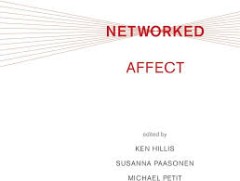
Networked affect
"Our encounters with websites, avatars, videos, mobile apps, discussion forums, GIFs, and nonhuman intelligent agents allow us to experience sensations of connectivity, interest, desire, and attachment -- as well as detachment, boredom, fear, and shame. Some affective online encounters may arouse complex, contradictory feelings that resist dualistic distinctions. In this book, leading scholars …
- Edition
- -
- ISBN/ISSN
- 9780262327350
- Collation
- 1 online resource (vii, 267 pages) :illustrations.
- Series Title
- -
- Call Number
- -
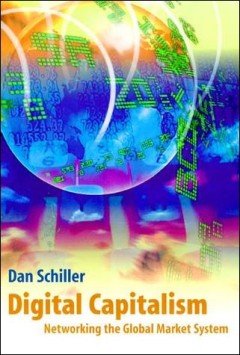
Digital capitalism: networking the global market system
Schiller traces the transformation of the Internet from government, military, and educational tool to agent of "digital capitalism" through three critically important and interlinked realms.The networks that comprise cyberspace were originally created at the behest of government agencies, military contractors, and allied educational institutions. Over the past generation or so, however, a growi…
- Edition
- -
- ISBN/ISSN
- 9780262283137
- Collation
- 1 online resource (xvii, 294 pages)
- Series Title
- -
- Call Number
- -

Digital Phoenix: Why the Information Economy Collapsed and How It Will Rise A…
How the future of the information economy will take place at the intersection of technology, law, and economics: lessons to be learned from the Microsoft antitrust trial, open-source software, and Napster.While we were waiting for the Internet to make us rich--back when we thought all we had to do was to buy lottery tickets called dotcom shares--we missed the real story of the information econo…
- Edition
- -
- ISBN/ISSN
- 9780262266727
- Collation
- -
- Series Title
- -
- Call Number
- -
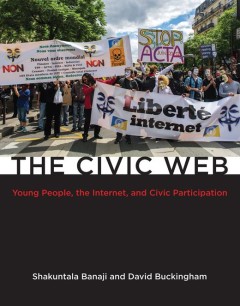
The Civic Web: Young People, the Internet, and Civic Participation
An investigation of how governments, organizations, and groups use the Internet to promote civic and political engagement among young people. There has been widespread concern in contemporary Western societies about declining engagement in civic life; people are less inclined to vote, to join political parties, to campaign for social causes, or to trust political processes. Young people in part…
- Edition
- -
- ISBN/ISSN
- 9781461947349
- Collation
- 1 online resource (xvi, 185 pages).
- Series Title
- -
- Call Number
- -
 Computer Science, Information & General Works
Computer Science, Information & General Works  Philosophy & Psychology
Philosophy & Psychology  Religion
Religion  Social Sciences
Social Sciences  Language
Language  Pure Science
Pure Science  Applied Sciences
Applied Sciences  Art & Recreation
Art & Recreation  Literature
Literature  History & Geography
History & Geography